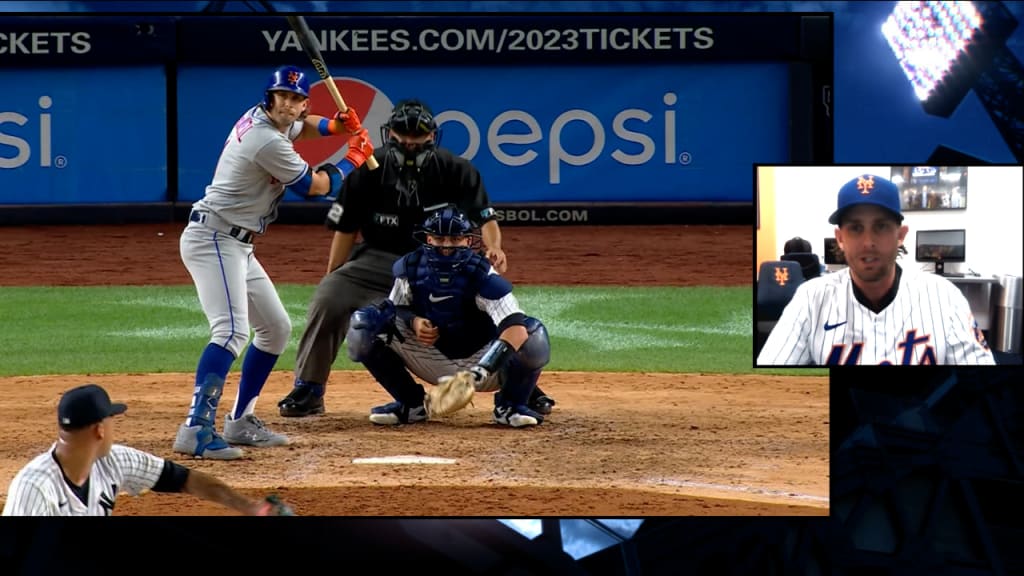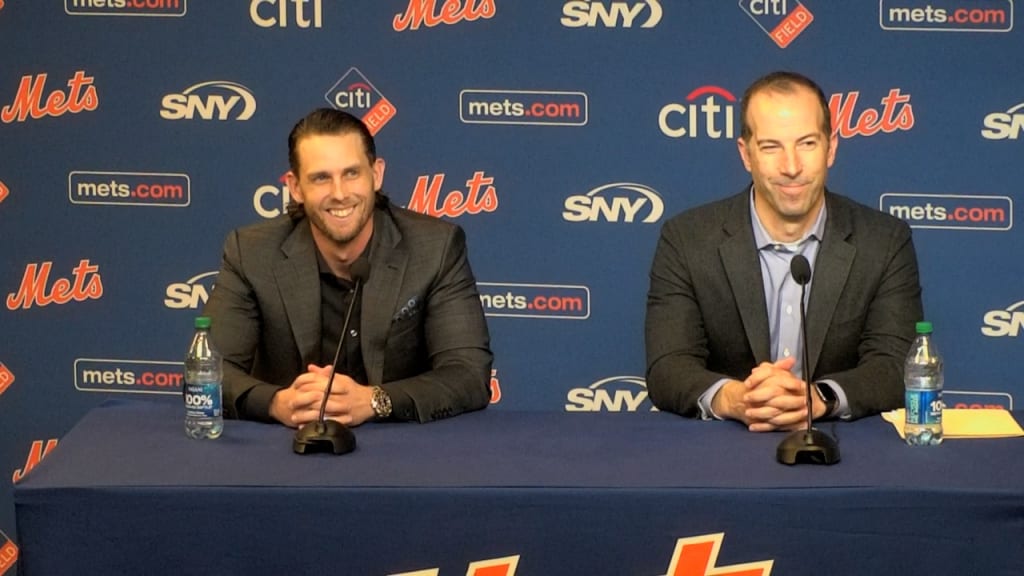McNeil extension signals Mets' commitment to homegrown players
This browser does not support the video element.
NEW YORK -- Jeff McNeil’s disjointed route to the Majors is, by this point, well documented. He did not play high school baseball until his senior year, preferring to focus on golf. He earned a scholarship to Cal State Long Beach anyway, became a 12th-round pick of the Mets and, after an injury-riddled Minor League career in which he essentially needed to force his way into every promotion, debuted amid as much skepticism as fanfare in 2018.
“I always thought he would be a good baseball player, but I’d be lying if I said he’d be an All-Star or a batting champion,” said Drew Toussaint, the scout who signed McNeil back in 2013. “That would be crazy.”
Now, McNeil is not only both of those crazy things, but also the poster child for how the Mets wish to treat their homegrown stars. Upon signing a four-year, $50 million contract extension, which the team made official at a Citi Field press conference on Tuesday, McNeil became the first Met to waive multiple arbitration years in favor of an extension since Juan Lagares in 2015. It’s just not the sort of thing that used to be done around Flushing, where fiscal austerity often drove players to free agency whether they wanted to go there or not. Outside of the David Wrights and Jacob deGroms of the world, extension conversations tended never to happen at all.
This browser does not support the video element.
These Mets, for those who haven’t been paying attention since Steve Cohen took ownership of the team in 2020, are different. In addition to filling countless needs through the top of the free-agent market, Cohen’s Mets like the idea of enticing their homegrown players to stay put. In New York’s own division, the Braves have shown how effective the strategy can be, all but ensuring long-term competitiveness by offering aggressive extensions to relatively unproven players.
The Mets have interest in that sort of thing, too.
“[I’m] always open to having dialogue if it makes sense for both sides,” general manager Billy Eppler said.
In McNeil’s case, the four-year deal with a $13.75 million fifth-year club option took about a week to get done. The Mets liked the idea because of McNeil’s elite bat-to-ball skills, competitiveness and positional versatility. McNeil favored the concept because it guaranteed him generational money, took away the stress of potential free agency at a relatively advanced age and because, in his words, “New York is my home.”
These aren’t rare circumstances. Plenty of Mets over the years have felt similarly without ever having the chance to negotiate. There are some around the team who believe that if the Mets had approached Pete Alonso early in his career about a reasonable extension, for example, he would have signed away his arbitration years at a far lower rate than it will now cost to keep him in Flushing.
This browser does not support the video element.
In Alonso’s specific case, an extension is still possible, albeit at a significant nine-figure cost. (Neither his camp nor the Mets are commenting on whether talks have occurred this offseason, but these sorts of deals tend to get done in February and March.) Longer term, the Mets’ appetite for extensions could allow them to follow Atlanta’s model in locking up high-upside players such as Francisco Álvarez or Brett Baty long before they approach free agency.
“I think it’s huge,” McNeil said. “We’re taking care of homegrown players who have been here a long time. It gives hope to the younger guys who are just coming up.”
Of the Mets’ core offensive pieces who debuted around the end of last decade, McNeil and Brandon Nimmo are now under guaranteed contract for years to come. Alonso could sign a long-term deal next; if nothing else, he’ll be here through 2024. After that, the rate of extensions seems likely to increase a good deal beyond what it was last decade.
“That’s the longer-term blueprint for the organization,” Eppler said. “The organization would love to be in a spot where we can use free agency to supplement and not have to go out and sign several or more players every given winter.”
McNeil is simply the first of this era, helping the Mets modernize and enrich their baseball operations. His path to Flushing may indeed have been rocky, but he’s paving a smoother one for the homegrown players behind him.

